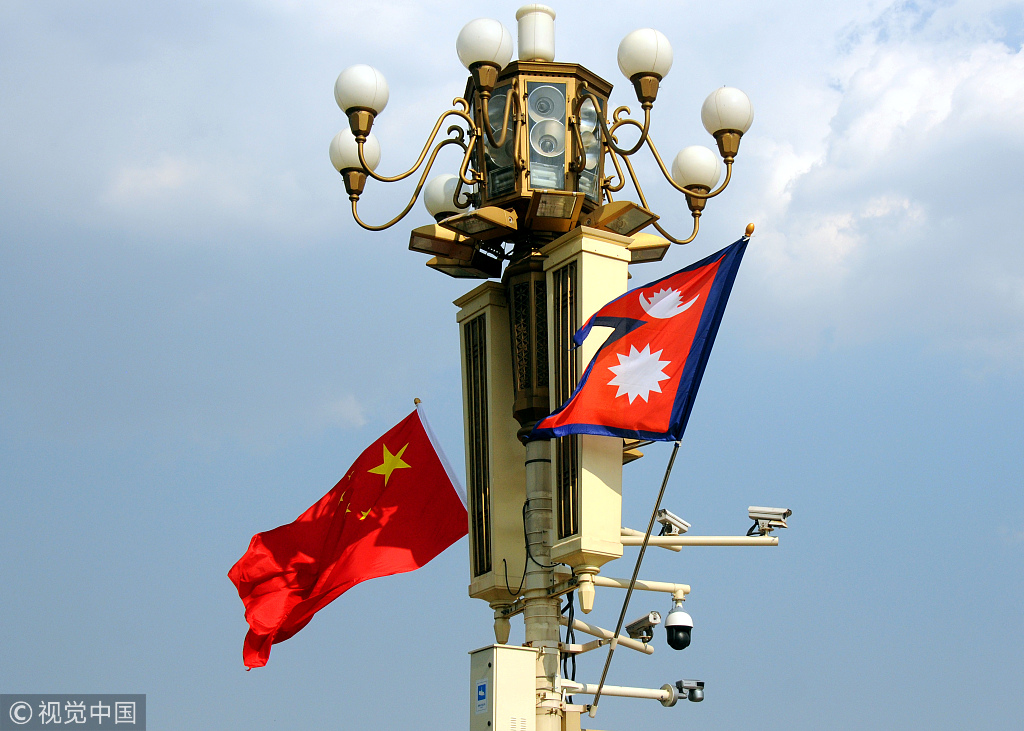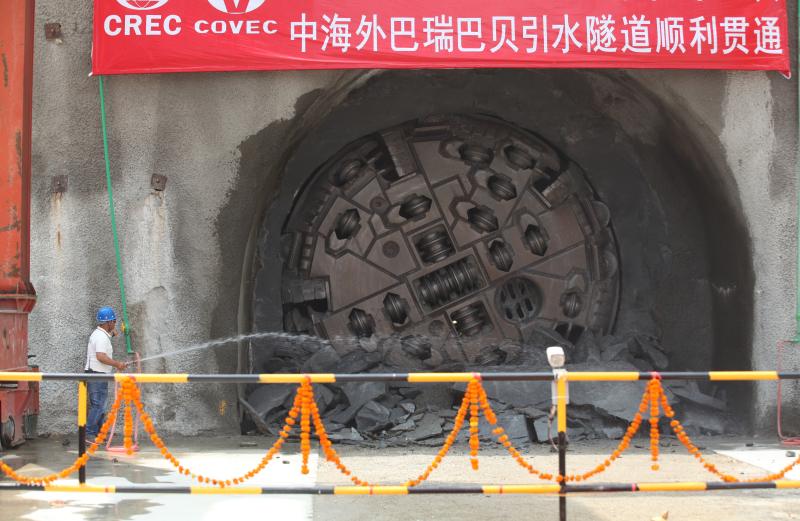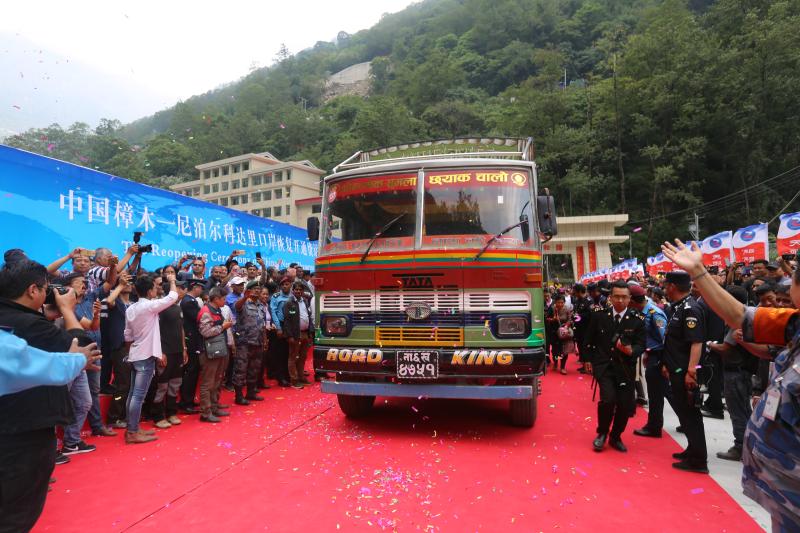Xi's historic visit boosts China-Nepal relations
- By Ritu Raj Subedi
 0 Comment(s)
0 Comment(s) Print
Print E-mail China.org.cn, October 12, 2019
E-mail China.org.cn, October 12, 2019

The state visit of Chinese President Xi Jinping to Nepal from Oct. 12-13 has been announced. Xi's visit will not only confirm the cooperative partnership between the two neighbors, but also enhance Nepal's geopolitical status in the region and beyond.
This marks the first visit of a Chinese president in 23 years, and people from all walks of life are expected to welcome President Xi in Kathmandu, following the grand tradition of Deng Xiaoping's visit in 1978 and that of Jiang Zemin in 1996.
President Xi will meet with his Nepali counterpart, Bidya Devi Bhandari, plus Prime Minister Khadga Prasad Sharma Oli and other top leaders, with the promise of taking multidimensional relations to a new high.
Linked by mountains and rivers, as well as a similar civilization ethos, Nepal and China have been close neighbors since the establishment of diplomatic relations in 1955. This lasting Sino-Nepal friendship offers a rare example of harmonious coexistence between two nations of vastly different geographical sizes and with contrasting socio-political systems.

Nepal and China have remained all-weather friends, offering help in times of need. For instance, China has assisted Nepal in developing infrastructure, agriculture, industries, hydropower, education and defense, and China's humanitarian support to Nepalis in the aftermath of the 2015 earthquake left memories etched deep in the minds and hearts of the people.
China's diplomatic policies since 2013 have brought shared prosperity to bordering nations. With its commitment to building partnerships with its neighbors, China aims to create an amicable, secure and prosperous neighborhood under the principles of mutual benefit and inclusiveness.
Xi's Nepal visit will mark another significant moment in realizing China's reciprocal neighborhood policy. The landmark visit takes place at a time when both nations have entered a new era. Following decades of political instability, Nepal has a strong government that has established the goal of "Prosperous Nepal, Happy Nepali."
Meanwhile, China is striving to build a modern, advanced and prosperous state. The Chinese Communist Party (CPC) has embraced Xi Jinping Thought on Socialism with Chinese Characteristics for a New Era, which seeks to achieve the "Two Centuries" objective of national rejuvenation. Furthermore, Xi's visit is taking place at a momentous moment as China celebrates the 70th anniversary of the founding of the PRC in 1949.
In 2013, China proposed the Belt and Road Initiative (BRI), reviving the concept of the ancient Silk Road by attempting to link Asia, Africa and Europe through massive investment in infrastructure development such as roads, railways, ports, communication lines and cross-border economic zones.

At the heart of the BRI lies a spirit of robust connectivity and unimpeded trade among nations. In last September, Nepal and China inked a landmark transit transport agreement which granted Nepal permission to use Chinese sea and land ports for the third country route, enabling it to change from a landlocked country into a land-linked one.
There is virtually all-party consensus in Nepal that the BRI will play a vital role in lifting the country's economy, which has historically been plagued by poor infrastructure, high unemployment rates, inflation and soaring trade deficit.
President Bhandari this year attended the second Belt and Road Forum for International Cooperation and met with President Xi. The joint communiqué of the forum incorporated the Nepal-China Trans-Himalayan Multi-Dimensional Connectivity Network and Nepal-China cross-border railway, demonstrating that China is ready to offer more assistance to Nepal in infrastructure development.
China is currently the top source of foreign direct investment and the second largest source of tourism to Nepal, and Xi's visit could even further boost the confidence of foreign investors and tourists from China and beyond to invest in and tour the country. Xi's visit will have a number of broad implications for Nepal's economy, people-to-people exchanges and regional cooperation.
Ritu Raj Subedi is the Deputy Executive Editor of The Rising Nepal.
Opinion articles reflect the views of their authors only, not necessarily those of China.org.cn.
If you would like to contribute, please contact us at opinion@china.org.cn.





